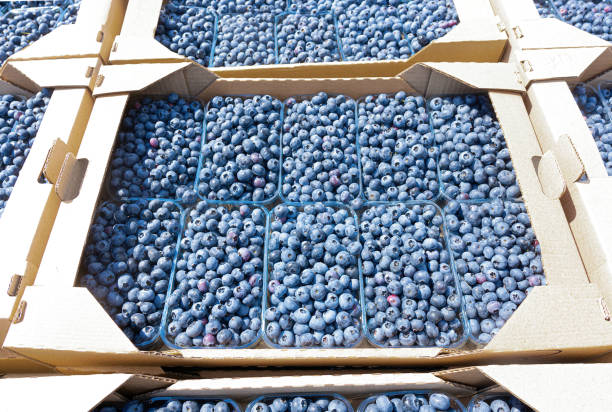Fresh produce suppliers play a crucial role in ensuring that consumers have access to high-quality fruits, vegetables, and other perishable goods. Whether you’re a restaurant owner, grocery store manager, or food service provider, choosing the right fresh produce supplier can significantly impact the success of your business.
Importance of Choosing Reliable Suppliers
In the realm of fresh produce, reliability is key. Suppliers must consistently deliver new, high-quality products to meet customer demands and maintain their reputation in the market. Reliability ensures that businesses can fulfill orders on time and keep their shelves stocked with fresh produce.
Factors to Consider When Selecting Fresh Produce Suppliers
Quality of Produce
The quality of fresh produce is non-negotiable. Customers expect fruits and vegetables to be new, flavorful, and free from defects. When choosing a supplier, businesses must prioritize quality to ensure customer satisfaction and loyalty.
Reliability and Consistency
Reliable suppliers adhere to strict quality control measures and maintain consistency in their product offerings. Businesses rely on consistent supply to meet the demands of their customers and avoid disruptions in their operations.
Pricing and Cost-effectiveness
While quality is paramount, pricing also plays a significant role in supplier selection. Businesses must strike a balance between quality and cost-effectiveness to maximize profitability without compromising on the freshness of their products.
Understanding the Supply Chain Process
The fresh produce supply chain involves various stages, from farming and harvesting to transportation and distribution. Understanding this process is essential for businesses to make informed decisions and optimize their supply chain operations.
Farming and Harvesting
Fresh produce begins its journey on farms, where crops are cultivated and harvested. The farming process directly impacts the quality and availability of produce throughout the supply chain.
Transportation and Storage
Once harvested, fresh produce must be transported to distribution centers and stored under optimal conditions to maintain freshness and extend shelf life. Proper transportation and storage facilities are essential for preserving the quality of perishable goods.
Distribution
The distribution stage involves delivering fresh produce from suppliers to retailers, restaurants, and other end consumers. Efficient distribution networks ensure timely delivery and minimize product spoilage during transit.
Benefits of Working with Local Fresh Produce Suppliers
Local suppliers offer several advantages, including fresher produce, shorter lead times, and support for the local economy. By sourcing from local suppliers, businesses can reduce transportation costs and carbon emissions while promoting sustainability and community engagement.
Sustainable Practices in Fresh Produce Supply Chain
Sustainability is a growing concern in the fresh produce industry. Suppliers are adopting sustainable farming practices, reducing waste, and implementing eco-friendly packaging solutions to minimize their environmental footprint and meet consumer expectations.
Technology Integration in Fresh Produce Supply Chain Management
Technology plays a vital role in modernizing the fresh produce supply chain. From inventory management systems to blockchain traceability solutions, technology enables greater transparency, efficiency, and accountability throughout the supply chain process.
Challenges Faced by Fresh Produce Suppliers
Despite the benefits, fresh produce suppliers face several challenges that impact their operations and profitability.
Seasonality and Weather Conditions
Seasonal fluctuations and adverse weather conditions can disrupt crop yields, leading to shortages and price volatility in the market.
Market Demand Fluctuations
The demand for fresh produce can vary significantly due to factors such as changing consumer preferences, dietary trends, and seasonal events.
Quality Control and Food Safety Regulations
Maintaining consistent quality and adhering to food safety regulations are paramount for fresh produce suppliers. Failure to meet regulatory standards can result in recalls, fines, and damage to brand reputation.
Strategies for Overcoming Challenges
To overcome these challenges, fresh produce suppliers must implement proactive strategies, including diversifying their product offerings, investing in advanced technologies, and building resilient supply chain networks.
Building Strong Relationships with Suppliers
Strong relationships based on trust and collaboration are essential for fostering long-term partnerships between suppliers and businesses. Effective communication and mutual respect are key drivers of successful supplier relationships.
Ensuring Food Safety and Quality Assurance
Implementing robust quality assurance protocols and adhering to stringent food safety standards are critical for maintaining consumer confidence and mitigating risks associated with foodborne illnesses and contamination.
The Role of Communication in Supplier Relationships
Clear and transparent communication is essential for resolving issues, addressing concerns, and building trust between suppliers and their clients. Open lines of communication facilitate collaboration and enable swift resolution of problems as they arise.
Trends in the Fresh Produce Supply Industry
The fresh produce supply industry is evolving rapidly, driven by consumer demand for healthier, locally sourced foods and sustainable farming practices. Trends such as farm-to-table initiatives, organic farming, and vertical farming are reshaping the landscape of the industry.
Case Studies: Successful Fresh Produce Supply Chains
Examining successful case studies can provide valuable insights into best practices and innovative strategies employed by fresh produce suppliers to overcome challenges and achieve sustainable growth.
Conclusion: The Future of Fresh Produce Suppliers
In conclusion, the role of fresh produce suppliers is integral to the global food supply chain. By prioritizing quality, sustainability, and innovation, suppliers can navigate challenges, capitalize on emerging trends, and contribute to a more resilient and sustainable food system.
